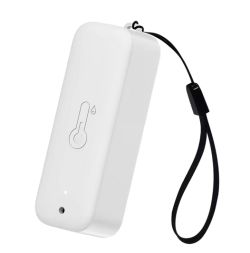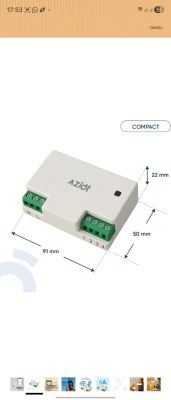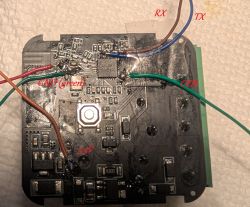max4elektroda wrote:Thanks to @divadiow we tested all platforms with the result that it works as before. If it was working before, it still is.
I liked testing this new full driver 🤓. Excellent work @max4elektroda 💯
Czy wolisz polską wersję strony elektroda?
Nie, dziękuję Przekieruj mnie tam



max4elektroda wrote:
Then I'd like to ask about the second part in used channels. If the channel type is != default it's regarded as used.
Could you please explain, why is this? If I change type to a temperature, I will surely also connect it to a sensor.
But I'm probably missing a simple point, since I usually don't really use the device with MQTT.
insmod wrote:BK7252 needs good old nop way.
divadiow wrote:= no need to test BK7252?
insmod wrote:Can a method from armino be adapted?
void arch_delay_us(uint32_t us)#elif (PLATFORM_BK7238)
// starting over again for BK7238
// read factors between 5 and 6,7 - using 6 seems a good start
// trying with 6.4 - higher values are off else
uint32_t ret;
uint32_t div;
uint32_t clk = 0;
uint32_t cell;
SYS_CTRL_U param;
ret = sddev_control(SCTRL_DEV_NAME, CMD_GET_SCTRL_CONTROL, ¶m);
BK_ASSERT(SCTRL_SUCCESS == ret); /* ASSERT VERIFIED */
div = param.bits.mclk_div;
switch (param.bits.mclk_mux) {
case MCLK_MODE_DCO:
case MCLK_MODE_26M_XTAL:
clk = 26000000;
break;
case MCLK_MODE_DPLL:
clk = 480000000 / (2 << div);
break;
case MCLK_MODE_LPO:
clk = 32000;
break;
default:
break;
}
BK_ASSERT(clk); /* ASSERT VERIFIED */
cell = 100 * clk / 26000;
cell *= delay;
volatile INT32 i, j;
for (i = 0; i < cell; i ++) {
for (j = 0; j < 100; j ++)
;
}
#else
testus <pin> <delay in us between tests> <testvalue 1> <testvalue 2> <testvalue 3> ... <testvalue 10>
max4elektroda wrote:If you ever feel you don't know what to do: it would be great to check the output on the pin with a logic analyzer.
max4elektroda wrote:testus <pin> <delay in us between tests> <testvalue 1> <testvalue 2> <testvalue 3> ... <testvalue 10>
divadiow wrote:testus 23 5000000 12 13 14 15 16 17 18 19 20




